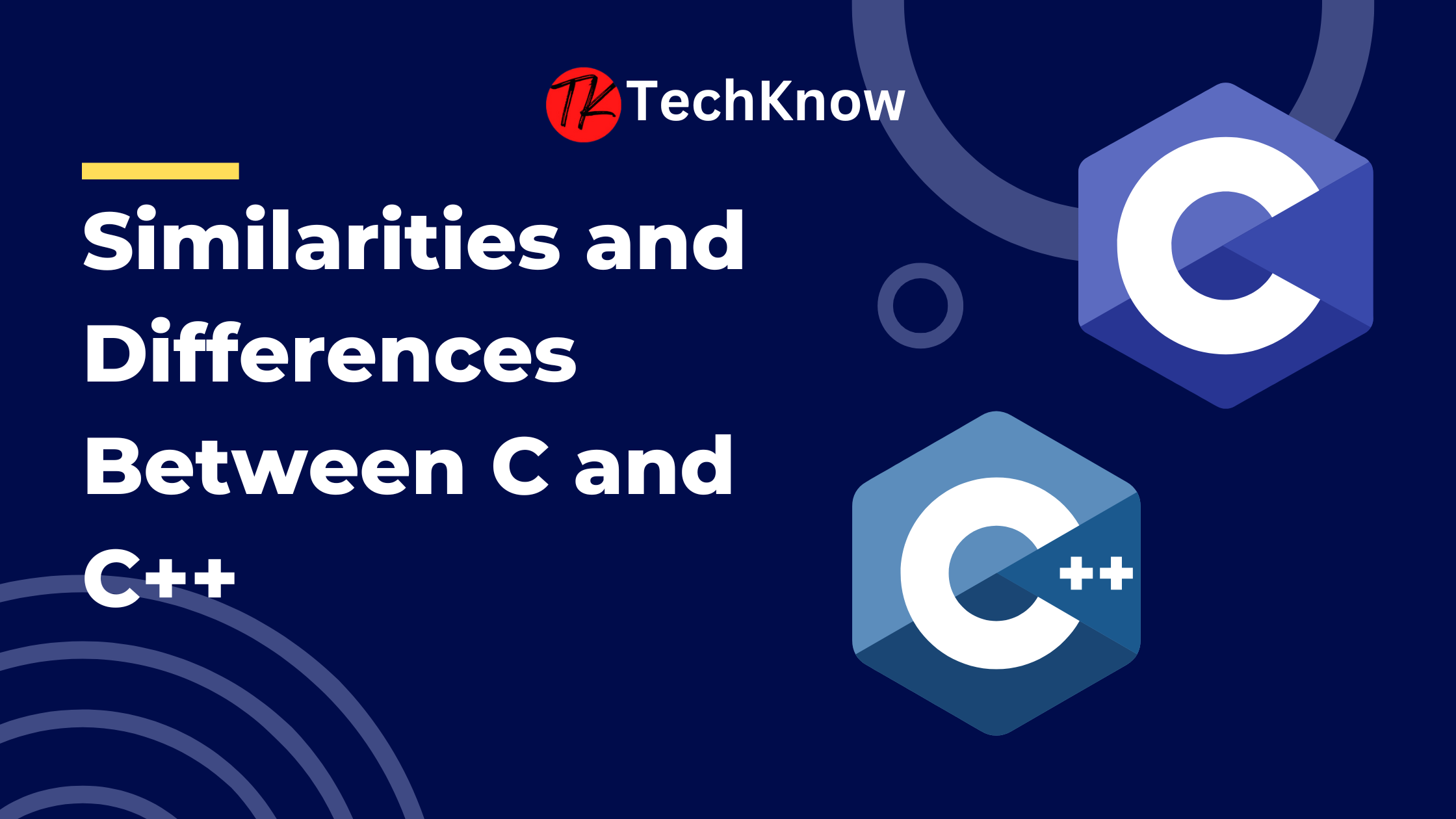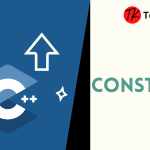Programming languages C and C++ are closely related and have been used extensively in software development over the years. Although C is recognised as one of the most important and fundamental programming languages, C++ has grown to be a potent addition to C, including characteristics that facilitate object-oriented programming and other sophisticated features. To help you grasp both C and C++, this blog will go in-depth on their respective advantages and disadvantages.
Table of Contents
Similarities Between C and C++
Since C++ is derived from C, both languages share many similarities. Let’s look at them in detail:
1. Syntax and Structure:
The syntax and structure of C and C++ are remarkably similar. Learning one language can make the switch to another simple because fundamental grammar such as loops, conditionals, and data types are the same in all languages.
Example of Basic Syntax:
// C code
int main() {
int a = 5;
printf("Value of a is: %d", a);
return 0;
}
// C++ code
#include <iostream>
using namespace std;
int main() {
int a = 5;
cout << "Value of a is: " << a;
return 0;
}2. Compilation Process:
The compilation procedure is comparable for C and C++. A compiler transforms a source file written in any language into machine code. Additionally, there is no difference in how the two languages handle preprocessor directives (such as #include, #define).
3. Procedural Programming:
Procedural programming, in which the focus is on functions and procedures to carry out tasks, is supported by both C and C++. But C++ is a multi-paradigm language (both procedural and object-oriented), whereas C is only procedural.
4. Data Types:
Basic data types including int, char, float, and double are shared by both C and C++. Pointers, arrays, and structures are all utilised in very similar ways.
5. Memory Management:
Memory management is done manually in both C and C++. C functions such as free() and malloc() allow programmers to deallocate and allocate memory dynamically, whereas new and delete in C++ correspond to these functions.
- C Code:
int *arr = (int*)malloc(10 * sizeof(int));
free(arr);- C++ Code:
int *arr = new int[10];
delete[] arr;6. Performance:
Because of their excellent performance, C and C++ are frequently utilised in embedded systems, systems programming, and applications that need for direct hardware contact. Both languages are extremely efficient because of the low-level memory access that they provide.
Differences Between C and C++
Despite having a solid base in common, C++ and C differ significantly from one another, particularly with regard to functionality, design principles, and capabilities.
1. Object-Oriented Programming (OOP):
The most significant difference between C and C++ is that C++ supports object-oriented programming (OOP), whereas C is strictly procedural.
OOP Features in C++:
- Classes and Objects: C++ allows for the creation of classes and objects, which provide a way to encapsulate data and behavior together.
- Inheritance: A feature where one class can inherit properties and behavior from another.
- Polymorphism: Allows methods to take on different forms based on the context, either via function overloading or operator overloading.
- Encapsulation: Bundling of data (variables) and methods (functions) that operate on the data into a single unit or class.
- Abstraction: Hiding the internal details of a system and only showing the essential features.
- C lacks these features, making it a purely procedural language without support for concepts like classes and inheritance.
C++ Example:
class Car {
public:
string brand;
int year;
void display() {
cout << "Brand: " << brand << " Year: " << year;
}
};
int main() {
Car car1;
car1.brand = "Toyota";
car1.year = 2020;
car1.display();
return 0;
}2. Standard Libraries:
C++ offers a richer standard library compared to C. The Standard Template Library (STL) in C++ provides powerful data structures (like vectors, stacks, queues) and algorithms that are not present in C.
C++ Example (Using STL):
#include <vector>
#include <iostream>
int main() {
std::vector<int> numbers = {1, 2, 3, 4, 5};
for (int n : numbers) {
std::cout << n << " ";
}
return 0;
}In contrast, C would require you to manually implement similar data structures, which can be more complex and error-prone.
3. Function Overloading and Operator Overloading:
Operator overloading and function overloading are supported in C++, enabling you to modify the behaviour of operators for custom types and define several functions with the same name but different parameters. C is devoid of these abilities.
C++ Example (Operator Overloading):
class Complex {
public:
int real, imag;
Complex operator + (const Complex &obj) {
Complex result;
result.real = real + obj.real;
result.imag = imag + obj.imag;
return result;
}
};4. Constructors and Destructors:
When objects are created and destroyed in C++, classes can contain constructors and destructors to initialise and clean up resources. Because C is a procedural language, constructors and destructors are not concepts.
C++ Example:
class MyClass {
public:
MyClass() {
cout << "Constructor called!";
}
~MyClass() {
cout << "Destructor called!";
}
};5. Namespace:
Namespaces are introduced in C++ to prevent name clashes in larger projects. Developers can organise related classes, objects, and functions together with this functionality. Because C lacks namespaces, naming clashes in bigger codebases are more common.
C++ Example (Namespace):
namespace first {
int val = 100;
}
namespace second {
int val = 200;
}
int main() {
cout << first::val; // Output: 100
return 0;
}Get overview on Youtube:
C vs C++ What is different?
6. Exception Handling:
Try, catch, and throw blocks in C++ provide organised exception management that improves error handling and increases program stability. C, on the other hand, depends on manual inspections and fault codes.
C++ Example:
try {
int x = -1;
if (x < 0) {
throw "Negative number!";
}
} catch (const char* msg) {
cout << msg;
}7. Type Safety:
Since function templates and more stringent type checking were included, C++ is thought to be more type-safe than C.
Conclusion:
In conclusion, while C and C++ share a common history and many features, C++ offers a plethora of sophisticated capabilities that make it more appropriate for larger, more intricate applications. While C++ offers more versatility with its support for object-oriented programming, extensive libraries, and contemporary features like exception handling and function overloading, C is still a fantastic language for low-level jobs and systems programming.
- When to use C: C is ideal for embedded systems, operating system development, and situations where direct hardware interaction and performance are critical.
- When to use C++: C++ is suitable for applications that require complex system designs, object-oriented architecture, and robust library support, like game development, real-time systems, and large-scale software solutions.
Understanding both languages gives you the power to choose the right tool for the job based on the specific needs of your project.
Learn More:
Setting Up a C++ Development Environment










